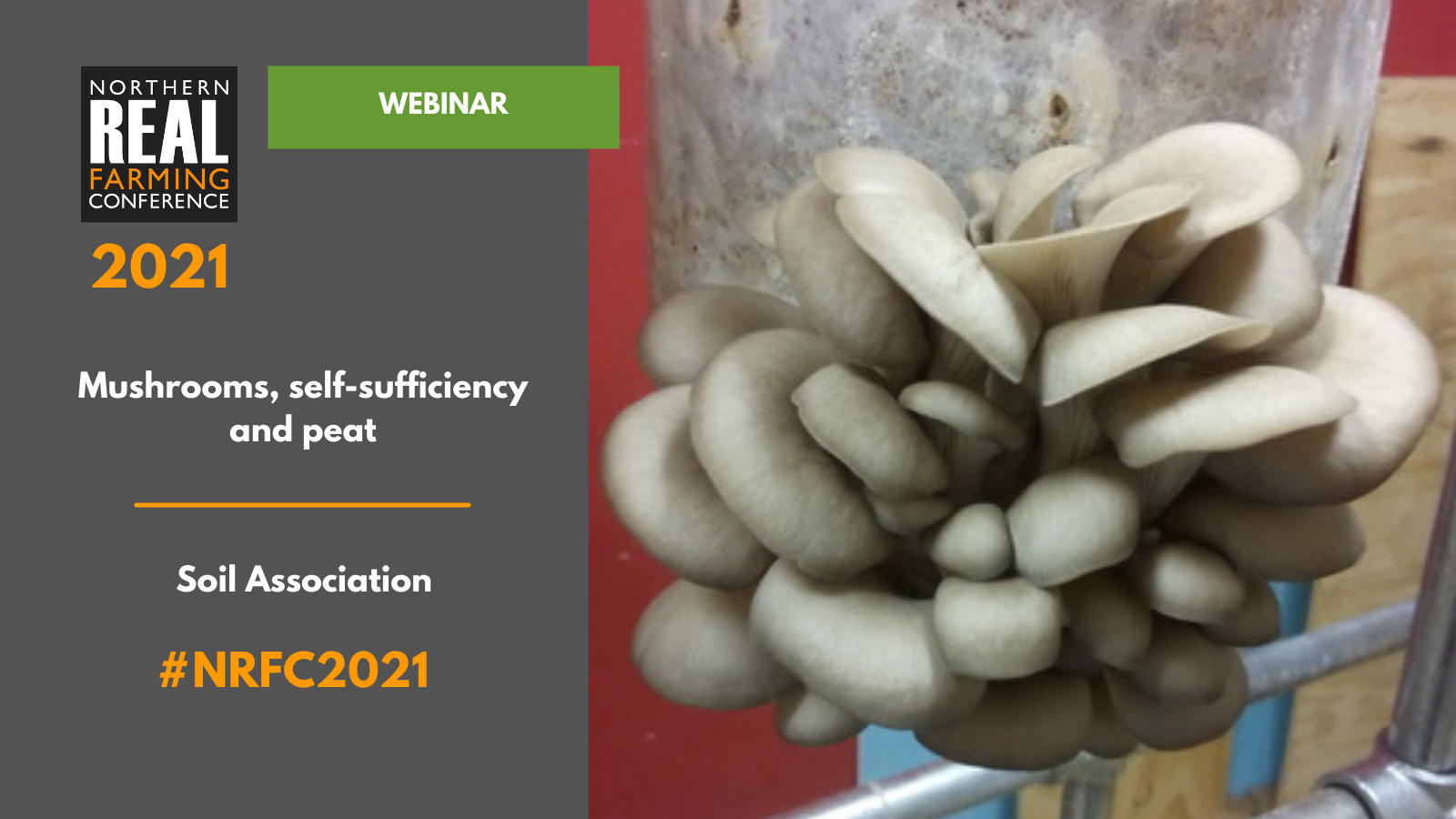Hosted by the Soil Association
The UK is less than 50% self-sufficient in mushrooms which is strange for a crop mostly grown in non-season dependant conditions. Opportunities for increasing UK mushroom production appears to be a low hanging fruit. We explore the aspirations and pitfalls of running an organic mushroom business selling both edible and medicinal produce and discuss scope for mycoremediation – cleaning up the environment using unproductive mushroom substrate. Upscaling mushroom production has its benefits and challenges but could small scale horticultural enterprises diversifying into mushroom production be a solution? We examine how new entrants could access mushroom growing through relatively cheap converted portable spaces and trial-before-you-buy schemes. Peat has been a contentious input in mushroom production (particularly for the infamous button mushroom). As part of Organic-PLUS research the Soil Association has been looking at some of the challenges facing the industry.
Speakers/hosts include:
Hugh Blogg – Hugh is Soil Association Horticultural Advisor, Farming and Land Use Team and has experience running a small-scale enterprise – Fungusloci – an urban mushroom micro-farm growing gourmet mushrooms on spent coffee. He leads on potato supply chain work focusing on the uptake of blight resistant varieties within retail. Further areas of focus include issues around seed for small scale growers, technical organic gardening queries, supporting the Fruit and Vegetable Alliance, and coordinating grower support for organic vineyards. Hugh has been involved in work on innovative solutions in organic agriculture and better connecting organic farming, carbon sequestration and soil health.
Tom Baxter – Tom is founder of Bristol Fungarium – producer of the UK’s only organic certified medicinal mushroom tinctures, grown and produced in Somerset
James Scriven – James is founder of Mycogeneration – an applied mycology business helping small-scale producers diversify into mushroom production

